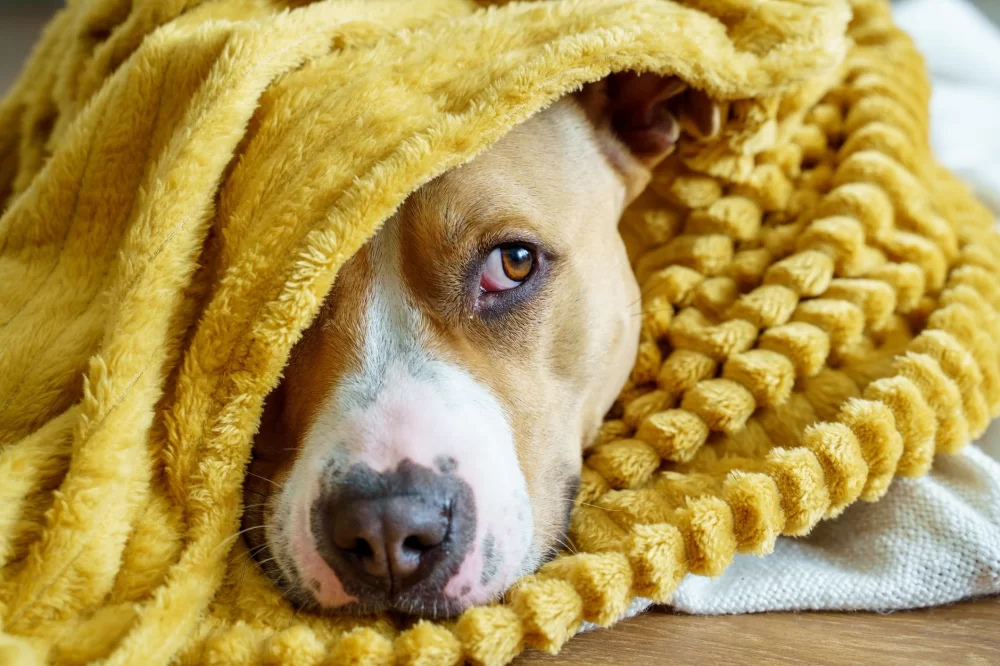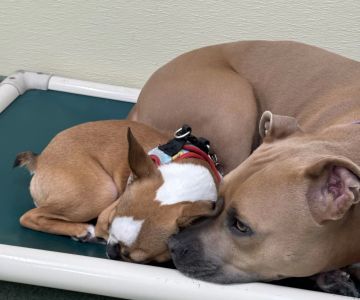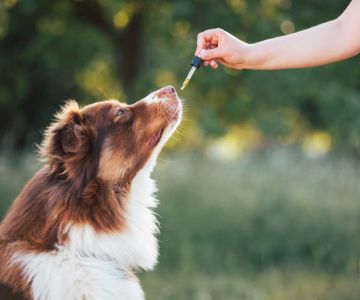How to Help Your Pet Overcome Anxiety During Vet Visits
Visiting the vet can be a stressful experience for many pets. Whether it’s the car ride, the unfamiliar smells, or the anticipation of a medical procedure, anxiety can take a toll on your furry friend. If your pet becomes anxious or fearful at the vet, it’s essential to find the right calming aids to ease their stress. In this article, we’ll explore various options that can help alleviate anxiety and make the vet visit a more pleasant experience for both you and your pet.
1. Understanding Pet Anxiety: What Causes It?
Before diving into the best calming aids, it’s important to understand why pets experience anxiety during vet visits. Pets, particularly dogs and cats, are creatures of habit, and changes in their environment can trigger stress. The vet's office, with its unfamiliar sounds, smells, and the presence of other animals, can be overwhelming for pets.
Common causes of anxiety in pets include:
- Unfamiliar environments: The vet’s office is filled with new smells and sounds that can trigger fear.
- Separation anxiety: Pets that have a strong attachment to their owners may feel anxious when left alone in a new place.
- Negative past experiences: If a pet has had a stressful or painful experience at the vet before, it may develop a fear of future visits.
- Separation from their owners: Some pets are particularly sensitive when their owners aren’t around during a vet visit.
2. The Best Calming Aids for Anxious Pets
Now that we understand the reasons behind pet anxiety, let's explore the calming aids that can help alleviate your pet’s stress during vet visits.
Natural Calming Remedies
Natural calming remedies can be a gentle and effective way to help your pet relax. These products are often made from herbs or essential oils and can be a good option for pets that are sensitive to synthetic medications.
2.1. CBD Oil for Pets
CBD oil has gained popularity as a natural remedy for anxiety in pets. Many pet owners have reported success using CBD oil to calm their pets during stressful situations, including vet visits. It works by interacting with your pet’s endocannabinoid system, which regulates anxiety and stress. CBD oil can help relax your pet without making them drowsy.
2.2. Herbal Supplements
Herbal remedies like chamomile, valerian root, and passionflower have long been used to calm both humans and animals. These natural ingredients can be found in various calming supplements specifically formulated for pets. These can help reduce anxiety without the risk of side effects often associated with stronger medications.
2.3. Essential Oils
Essential oils, such as lavender and chamomile, have calming properties that can benefit pets experiencing anxiety. Diffusing these oils in the home before a vet visit can create a relaxing environment for your pet. However, be cautious and ensure that any essential oils you use are safe for pets, as some oils can be toxic to animals.
Pet Anxiety Vest or Shirt
Another popular solution for pet anxiety is the anxiety vest or shirt. These garments provide gentle, constant pressure to help calm your pet during stressful situations. The idea behind the vest is similar to swaddling an infant – the pressure helps to reduce anxiety and create a feeling of security. Many pet owners have found success using anxiety vests during vet visits or trips to the groomer.
Calming Chews and Treats
If your pet is particularly food-motivated, calming chews and treats can be a great option. These chews often contain ingredients like L-theanine, melatonin, or valerian root, which have been shown to promote relaxation in pets. Giving your pet a calming treat about 30 minutes before their vet appointment can help reduce stress and make the visit more manageable.
Prescription Medication
In some cases, natural remedies and calming products may not be enough to manage your pet’s anxiety. If your pet experiences severe anxiety, prescription medication may be necessary. Your veterinarian can prescribe anti-anxiety medications, such as trazodone or alprazolam, which are specifically formulated for pets. These medications can help relax your pet before and during a vet visit.
3. Training Your Pet to Stay Calm at the Vet
While calming aids can be extremely helpful, training your pet to stay calm at the vet is an important step in reducing their anxiety. With time and patience, you can help your pet associate the vet’s office with positive experiences.
3.1. Desensitization
Desensitization involves exposing your pet to the vet’s office in a controlled, non-threatening way. Start by visiting the vet’s office when it’s not time for an appointment. Bring your pet in for short visits, just to get them used to the environment. Offer treats and praise to create positive associations with the location.
3.2. Counter-Conditioning
Counter-conditioning involves changing your pet’s emotional response to a stressful situation. For example, if your pet becomes anxious when they see the vet’s building, you can reward them with treats and praise for calm behavior. Over time, they will learn to associate the vet with positive experiences.
4. Real-Life Story: How One Dog Overcame Vet Visit Anxiety
Meet Max, a 4-year-old Golden Retriever who had a deep fear of vet visits. Every time he was taken to the vet, he would tremble, bark, and try to escape. Max’s owner, Sarah, tried several calming aids, including CBD oil and calming treats, but nothing seemed to work. That’s when Sarah decided to try desensitization and counter-conditioning.
Over the course of a few weeks, Sarah brought Max to the vet’s office without an appointment, rewarding him with treats and praise every time he stayed calm. Slowly, Max began to associate the vet’s office with positive experiences, and his anxiety started to decrease. By the time it was time for his next appointment, Max was much calmer, and the vet visit was much less stressful for both Sarah and Max.
5. Conclusion: Making Vet Visits Less Stressful for Your Pet
Managing your pet’s anxiety during vet visits is possible with the right tools and strategies. Whether you opt for natural calming aids, prescription medication, or behavior modification techniques, it’s important to find what works best for your pet. Remember, every pet is different, so be patient and try a combination of methods to help ease their stress. With time and care, you can ensure that vet visits are a positive experience for your furry companion.












